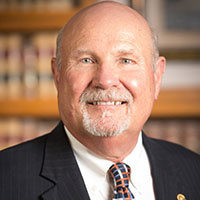Okeene Misdemeanor Lawyer, Oklahoma
Sponsored Law Firm
-
 x
x

Click For More Info:
-
Pritchett Law Group
126 West Needles Avenue Bixby, OK 74008» view mapEstate Law A Focus On Results
Don't wait! Contact us for a free phone consultation. Let us help you figure out what your next best steps are
918-509-3891
Not enough matches for Okeene Misdemeanor lawyer.
Below are all Okeene Criminal lawyers.
Fletcher D Handley
✓ VERIFIEDCriminal, Accident & Injury, Divorce & Family Law, Estate, Oil & Gas
Fletcher Dal Handley, Jr., is a civil justice attorney with The Handley Law Center in Oklahoma. His practice is focused on Personal Injury Law, repres... (more)
Linda Knak
Divorce, Adoption, Divorce & Family Law, Criminal
Status: In Good Standing Licensed: 26 Years
Jessica Leigh Caruthers
Criminal, Business, Property & Casualty, Guardianships & Conservatorships
Status: In Good Standing
 Monty Pritchett Bixby, OK
Monty Pritchett Bixby, OK AboutPritchett Law Group
AboutPritchett Law Group

